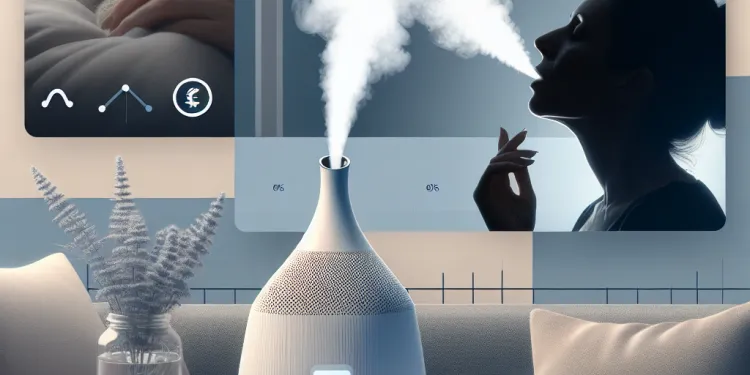
Find Help
More Items From Ergsy search
-
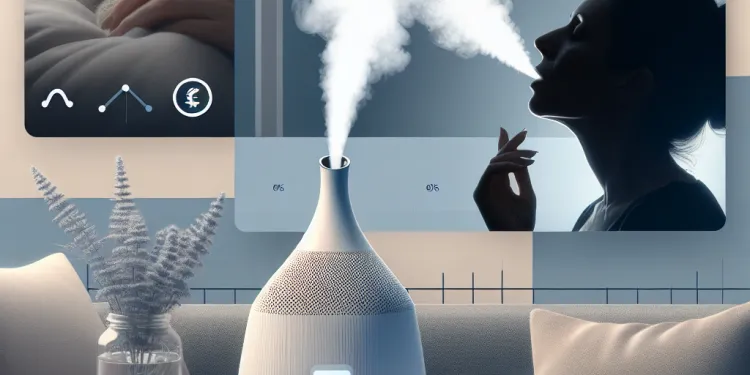
Can I use a humidifier to help with my cold symptoms?
Relevance: 100%
-

What are the symptoms of a cold sore?
Relevance: 54%
-

What are the common symptoms of a cold?
Relevance: 54%
-

How to Treat a Common Cold
Relevance: 54%
-

How can I treat a cold at home?
Relevance: 54%
-

How do I treat my child's cold? (9 - 30 months) | NHS
Relevance: 48%
-

Can I take antibiotics for a cold?
Relevance: 47%
-

How to treat a cold | NHS
Relevance: 47%
-
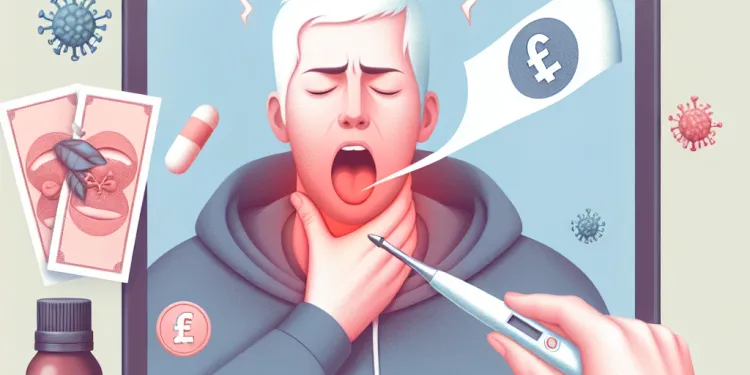
What is the best way to treat a sore throat from a cold?
Relevance: 44%
-

Should I see a doctor for a cold?
Relevance: 43%
-

Can cold weather cause a cold?
Relevance: 41%
-
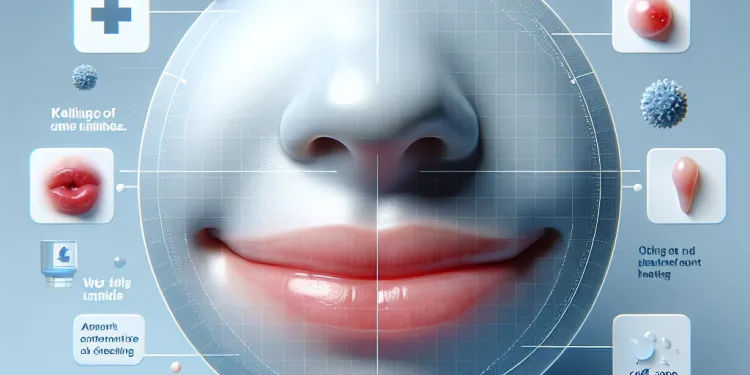
What are Cold Sores?
Relevance: 40%
-

Are cold sores contagious?
Relevance: 40%
-

How long does a common cold typically last?
Relevance: 40%
-

Is there a way to cure a cold quickly?
Relevance: 40%
-

Is there a cure for cold sores?
Relevance: 39%
-

Is it safe to exercise with a cold?
Relevance: 39%
-

Is Vitamin C effective against colds?
Relevance: 38%
-

Can children take the same cold medications as adults?
Relevance: 38%
-
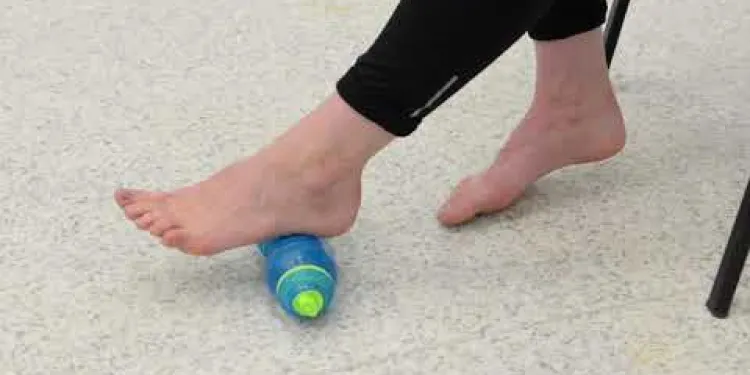
Plantar Fascia Cold Therapy
Relevance: 38%
-
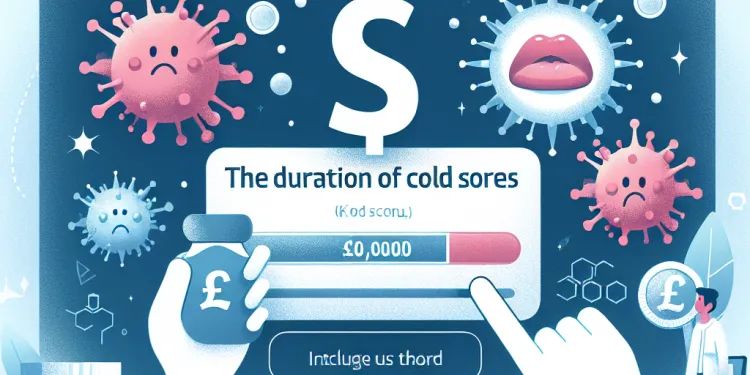
How long do cold sores last?
Relevance: 37%
-

How are cold sores transmitted?
Relevance: 37%
-

What causes cold sores?
Relevance: 35%
-

Can orange juice help prevent colds?
Relevance: 35%
-

What should you do if you have a cough or cold?
Relevance: 34%
-

How can I prevent spreading my cold to others?
Relevance: 33%
-

What triggers a cold sore outbreak?
Relevance: 33%
-

How can I prevent cold sores?
Relevance: 33%
-

Is it safe to take cold showers during a heatwave?
Relevance: 32%
-

Honey 'as good as antiviral creams' for cold sores | NHS Behind the Headlines
Relevance: 31%
-

Symptoms of flu (influenza)
Relevance: 31%
-

Is it okay to use ice packs or cold showers to cool down?
Relevance: 30%
-

Can I receive the Warm Home Discount and Cold Weather Payment?
Relevance: 29%
-

Can hay fever symptoms mimic other conditions?
Relevance: 29%
-

What are the common symptoms of asthma?
Relevance: 29%
-

How long does it take for symptoms to appear?
Relevance: 28%
-
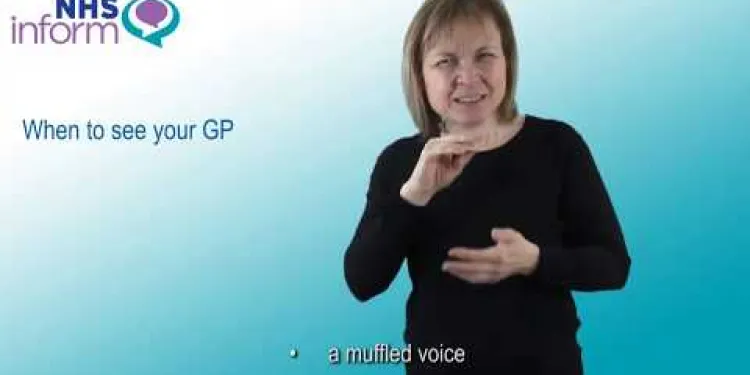
Treating a sore throat
Relevance: 28%
-

Can exercise trigger asthma symptoms?
Relevance: 26%
-
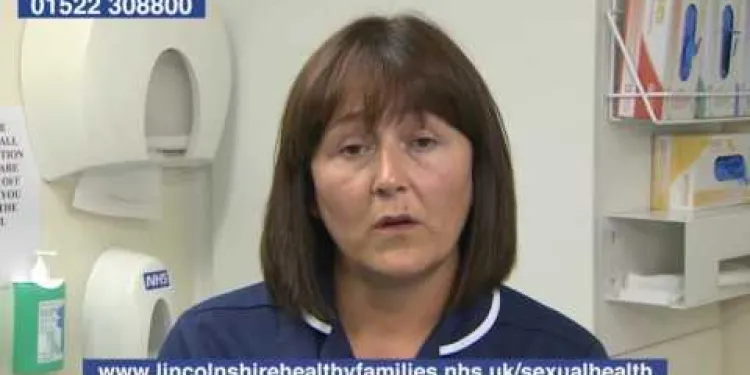
The symptoms of gonorrhoea
Relevance: 26%
-

What are the symptoms of flu ?
Relevance: 25%
Can I Use a Humidifier to Help with My Cold Symptoms?
Understanding Cold Symptoms
In the United Kingdom, the common cold is a frequent issue, especially during the colder months. Cold symptoms can include a runny nose, sore throat, cough, congestion, sneezing, and mild fatigue. Many people seek various remedies to alleviate these uncomfortable symptoms, and using a humidifier is one such option.
How a Humidifier Works
A humidifier adds moisture to the air, which can be particularly beneficial during the autumn and winter months when indoor heating can lead to drier air in your home. This dry air can exacerbate cold symptoms such as a sore throat, dry nasal passages, and coughs. Humidifiers can help by maintaining an optimal level of humidity, which may make breathing easier and reduce irritation.
Benefits of Using a Humidifier for Cold Symptoms
Using a humidifier may help ease congestion by thinning mucus, making it easier to expel. Moist air can also soothe irritated nasal tissues and throats, providing some relief from a dry cough. Additionally, humidified air can improve sleep quality by alleviating nighttime coughing fits, leading to better rest which is crucial for recovery.
Considerations When Using a Humidifier
When using a humidifier, it's important to follow the manufacturer’s guidelines to ensure safety and efficacy. Over-humidification can lead to other issues such as mold growth, which can worsen respiratory symptoms rather than alleviate them. It's recommended to keep indoor humidity levels between 30% and 50% for optimal results. Regular cleaning of the device is also essential to prevent bacteria and mold buildup.
Conclusion
While a humidifier can be a useful tool for alleviating cold symptoms by adding moisture to the air, it is most effective when used as part of a broader strategy for managing cold symptoms. Maintaining good hydration, rest, and over-the-counter remedies can complement the use of a humidifier. Always consider consulting with a healthcare professional if symptoms persist or worsen.
Can I Use a Humidifier to Help with My Cold Symptoms?
Understanding Cold Symptoms
In the UK, getting a cold is common, especially when it is cold outside. A cold can make you have a runny nose, sore throat, cough, and feel tired. Many people try different things to feel better, and using a humidifier is one option.
How a Humidifier Works
A humidifier adds water to the air. This is helpful when it is autumn and winter because heating can make our homes dry. Dry air can make a sore throat, dry nose, and cough worse. A humidifier adds water to the air to help you breathe easier and feel better.
Benefits of Using a Humidifier for Cold Symptoms
A humidifier can help your nose feel less blocked by making mucus thinner. It can also calm a sore nose and throat, helping with a dry cough. Humid air can help you sleep better at night by reducing coughing, which is important to help you get better.
Considerations When Using a Humidifier
When you use a humidifier, follow the instructions to use it safely. Too much moisture can lead to mold, which can make breathing problems worse. Keep humidity between 30% and 50% for best results. Clean the humidifier regularly to stop bacteria and mold from growing.
Conclusion
A humidifier can help with a cold by adding water to the air. It works best with other things like drinking water, resting, and using medicine you can buy at the store. If you still feel bad or get worse, you should talk to a doctor.
Frequently Asked Questions
Can using a humidifier help with my cold symptoms?
Yes, using a humidifier can help alleviate cold symptoms by adding moisture to the air, which can soothe dry throats and ease nasal congestion.
What kind of humidifier is best for cold symptoms?
Both cool mist and warm mist humidifiers can be beneficial for cold symptoms. Cool mist humidifiers are generally safer, especially in homes with children.
How does a humidifier alleviate dry throat from a cold?
A humidifier adds moisture to dry air, which can help keep the throat moist and reduce irritation or the scratchy feeling often experienced during a cold.
Can using a humidifier prevent a cold?
While a humidifier doesn't prevent a cold, it can reduce the chances of developing one by keeping nasal passages moist and potentially reducing the survival of viruses.
How often should I clean my humidifier?
You should clean your humidifier at least once a week to prevent the growth of mould and bacteria, which can worsen respiratory issues.
What humidity level is ideal when using a humidifier for colds?
An ideal indoor humidity level is between 30% and 50%. This range helps alleviate cold symptoms without promoting mould growth.
Can a humidifier make my cold worse?
A dirty humidifier or too high humidity levels can worsen symptoms by promoting mould growth and dust mites. Regular cleaning and proper settings can prevent this.
Is it good to sleep with a humidifier on when I have a cold?
Yes, using a humidifier at night can help keep nasal passages and throats comfortable, which can lead to better sleep.
Are there any risks associated with using humidifiers while having a cold?
Risks include bacterial growth if not cleaned properly and excessive humidity leading to condensation and mould. Monitoring humidity and regular cleaning mitigate these risks.
How can I tell if my humidifier is helping my cold symptoms?
You might notice easier breathing, reduced nasal congestion, and a less irritated throat. Improvements in sleep quality can also indicate benefits.
How long should I use a humidifier each day for cold symptoms?
Running the humidifier for several hours during the day and through the night, or as needed to maintain ideal humidity levels, is usually beneficial.
Is it okay to add essential oils to my humidifier for cold relief?
Adding essential oils is typically not recommended unless the humidifier is specifically designed for such use, as it can damage the unit.
What are some signs that the humidity level is too high?
Signs include windows fogging up, condensation on walls, and a damp feeling in the air. You might also notice a musty smell or mould growth.
Does the type of water used in a humidifier matter?
Using distilled or demineralized water is best to prevent mineral buildup and the dispersal of white dust, which can occur with tap water.
Can a humidifier help with coughs associated with a cold?
Yes, a humidifier can help reduce coughing by moistening dry airways, making it easier to expel mucus and soothe irritation.
Can a humidifier help me feel better when I have a cold?
A humidifier is a machine that puts water in the air.
When you have a cold, it can be hard to breathe. A humidifier can help make the air moist, making it easier to breathe and feel better.
Try using a humidifier in your room. Ask an adult to help you with it.
You can also use things like tissues for a runny nose and drink warm drinks like soup or tea.
Yes, a humidifier can help when you have a cold. It puts water in the air. This can make your throat feel better and help you breathe easier by clearing your nose.
Which humidifier helps best with a cold?
When you have a cold, a humidifier can help you breathe better. There are different types of humidifiers. Here are two main types:
Cool mist humidifier: This type sends cool mist into the air. It can help make it easier to breathe and also cool the room a little.
Warm mist humidifier: This one sends warm mist into the air. It can make the room feel cozy and may help with cold symptoms.
Both types can help when you have a cold, but a cool mist humidifier is often safer, especially for children.
If you find it hard to pick, you can ask a grown-up or use the pictures and instructions that come with the humidifier to help decide.
Both cool mist and warm mist humidifiers can help when you have a cold. Cool mist humidifiers are usually safer, especially if you have kids at home.
How does a humidifier help with a dry throat from a cold?
A humidifier is a device that puts water into the air. This makes the air less dry. When you have a cold, your throat might feel dry and sore. Breathing in air from a humidifier can make your throat feel better. Try using a humidifier in your room, especially when you sleep. You can also try drinking warm water or tea to help your throat.A humidifier puts water in the air. This helps keep your throat wet. It can make your throat feel better if it's sore or scratchy when you have a cold.
Can a humidifier help stop a cold?
A humidifier is a machine that puts water in the air. It can make it easier to breathe. But it might not stop a cold.
Here are some tips to stay healthy:
- Wash your hands often with soap and water.
- Eat fruits and vegetables to stay strong.
- Sleep well every night.
If you have trouble reading, you can use tools that read words out loud. Also, ask an adult if you need help.
A humidifier cannot stop you from getting a cold, but it can help. It keeps your nose wet, which might make it harder for germs to live.
How often should I clean my humidifier?
You should clean your humidifier a lot. Clean it every few days. It will keep the air fresh and safe.
To help you clean well, use a timer or calendar. It will remind you when it's time to clean.
Clean your humidifier every week. This stops mould and germs from growing. Mould and germs can cause breathing problems.
What humidity level is best when using a humidifier for a cold?
When you have a cold, using a humidifier can help. It puts moisture in the air. The best humidity level is between 30% and 50%. This keeps the air just right, not too wet or too dry.
Here are some tips to help you:
- Use a humidity meter to check the level in the room.
- Clean the humidifier often to keep it safe to use.
- Place the humidifier near where you will be resting, but not too close.
Asking someone for help or using pictures might make it easier to use a humidifier.
The best humidity level inside your home is between 30% and 50%. This helps you feel better when you have a cold and stops mould from growing.
Will a humidifier make my cold worse?
A humidifier is a machine that adds water to the air. It can help you breathe easier when you have a cold. But using it the wrong way might make you feel sicker.
Tips:
- Keep the humidifier clean to stop germs from growing.
- Use it only when you need it.
- Don't let the room get too wet.
If you need help, ask someone you trust or a doctor.
Dirty humidifiers and too much humidity can make it easy for mold and dust mites to grow. This can make you feel worse. Clean your humidifier often and keep humidity levels just right to help stay healthy.
Should I sleep with a humidifier when I have a cold?
Yes, using a humidifier at night can help you breathe better. It keeps your nose and throat comfortable, so you can sleep well.
Can using a humidifier when you have a cold be bad for you?
Using a humidifier can help when you have a cold. But sometimes it can cause problems.
- If the humidifier is not clean, it can spread germs. This might make you feel worse.
- If the air gets too wet, it can make it hard to breathe.
Make sure to clean the humidifier often. Keep the air not too wet and not too dry.
If you need help, ask an adult or use videos to learn how to clean it.
There are some risks. If we don’t clean properly, bacteria can grow. If it is too damp, water can build up and mold may grow. We can stop these risks by checking the dampness and cleaning often.
How do I know if my humidifier is helping my cold?
A humidifier adds water to the air. It can help when you have a cold. Here's how to check if it's working:
- Do you breathe easier? If yes, the humidifier is helping.
- Is your throat less sore? This means it's working.
- Do you cough less? Good, the humidifier is useful.
To get more help, you can:
- Ask an adult to check if the humidifier is on the right setting.
- Use a timer to make sure it's on when you need it.
Remember to keep the humidifier clean!
You might find it easier to breathe, have less stuffy nose, and your throat might not feel as sore. Sleeping better can also show that things are getting better.
How long should I use a humidifier each day if I have a cold?
Use a humidifier when you have a cold. A humidifier adds moisture to the air, which can help you feel better.
Here is what you can do:
- Use the humidifier while you sleep at night.
- Use it for a few hours during the day if you are at home and feel stuffy.
Make sure to:
- Keep the humidifier clean so it works properly.
- Ask an adult for help if you are not sure how to use it.
If you need help, you can use tools:
- Use a timer to remember when to turn the humidifier on or off.
- Set a reminder on your phone or with a sticky note.
It is good to use the humidifier for a few hours during the day and at night. This helps keep the air just right.
Can I put essential oils in my humidifier to help with a cold?
If you have a cold, you might want to feel better.
You can use a humidifier to make the air less dry.
Some people think adding essential oils helps too.
But, check if your humidifier is safe for oils.
If you’re not sure, ask an adult for help.
A simple way to feel better is to drink lots of water.
You can also ask a grown-up for medicines if you need them.
You should not put essential oils in a humidifier unless it is made for them. It can break the humidifier.
Signs the Air is Too Wet
How can you tell if the air is too wet in your home? Here are some signs:
- Windows have water drops on them.
- You see mold spots on the walls.
- Rooms smell musty or damp.
- It feels sticky and uncomfortable.
If you notice these things, the air might be too wet. You can use tools like a dehumidifier to help.
Look out for signs like wet windows, wet walls, and a damp feeling in the air. You might also smell something musty or see mould growing.
Is it important what kind of water you put in a humidifier?
It is best to use special water called distilled or demineralized water. This will stop minerals from building up and prevent white dust from spreading, which can happen if you use tap water.
Can a humidifier help when you have a cough from a cold?
Yes, a humidifier can help. When you have a cold, the air can feel dry. A humidifier adds water to the air. This can make it easier to breathe and help calm your cough.
Remember to:
- Keep the humidifier clean.
- Use it in the room where you spend the most time.
Ask an adult to help you set up the humidifier. You can also drink warm drinks. This can help you feel better too.
Yes, a humidifier can help you stop coughing. It adds moisture to the air, which makes it easier to get rid of mucus and makes your throat feel better.
Useful Links
This website offers general information and is not a substitute for professional advice.
Always seek guidance from qualified professionals.
If you have any medical concerns or need urgent help, contact a healthcare professional or emergency services immediately.
Some of this content was generated with AI assistance. We’ve done our best to keep it accurate, helpful, and human-friendly.
- Ergsy carfully checks the information in the videos we provide here.
- Videos shown by Youtube after a video has completed, have NOT been reviewed by ERGSY.
- To view, click the arrow in centre of video.
- Most of the videos you find here will have subtitles and/or closed captions available.
- You may need to turn these on, and choose your preferred language.
- Go to the video you'd like to watch.
- If closed captions (CC) are available, settings will be visible on the bottom right of the video player.
- To turn on Captions, click settings .
- To turn off Captions, click settings again.
More Items From Ergsy search
-

Can I use a humidifier to help with my cold symptoms?
Relevance: 100%
-

What are the symptoms of a cold sore?
Relevance: 54%
-

What are the common symptoms of a cold?
Relevance: 54%
-

How to Treat a Common Cold
Relevance: 54%
-

How can I treat a cold at home?
Relevance: 54%
-

How do I treat my child's cold? (9 - 30 months) | NHS
Relevance: 48%
-

Can I take antibiotics for a cold?
Relevance: 47%
-

How to treat a cold | NHS
Relevance: 47%
-

What is the best way to treat a sore throat from a cold?
Relevance: 44%
-

Should I see a doctor for a cold?
Relevance: 43%
-

Can cold weather cause a cold?
Relevance: 41%
-

What are Cold Sores?
Relevance: 40%
-

Are cold sores contagious?
Relevance: 40%
-

How long does a common cold typically last?
Relevance: 40%
-

Is there a way to cure a cold quickly?
Relevance: 40%
-

Is there a cure for cold sores?
Relevance: 39%
-

Is it safe to exercise with a cold?
Relevance: 39%
-

Is Vitamin C effective against colds?
Relevance: 38%
-

Can children take the same cold medications as adults?
Relevance: 38%
-

Plantar Fascia Cold Therapy
Relevance: 38%
-

How long do cold sores last?
Relevance: 37%
-

How are cold sores transmitted?
Relevance: 37%
-

What causes cold sores?
Relevance: 35%
-

Can orange juice help prevent colds?
Relevance: 35%
-

What should you do if you have a cough or cold?
Relevance: 34%
-

How can I prevent spreading my cold to others?
Relevance: 33%
-

What triggers a cold sore outbreak?
Relevance: 33%
-

How can I prevent cold sores?
Relevance: 33%
-

Is it safe to take cold showers during a heatwave?
Relevance: 32%
-

Honey 'as good as antiviral creams' for cold sores | NHS Behind the Headlines
Relevance: 31%
-

Symptoms of flu (influenza)
Relevance: 31%
-

Is it okay to use ice packs or cold showers to cool down?
Relevance: 30%
-

Can I receive the Warm Home Discount and Cold Weather Payment?
Relevance: 29%
-

Can hay fever symptoms mimic other conditions?
Relevance: 29%
-

What are the common symptoms of asthma?
Relevance: 29%
-

How long does it take for symptoms to appear?
Relevance: 28%
-

Treating a sore throat
Relevance: 28%
-

Can exercise trigger asthma symptoms?
Relevance: 26%
-

The symptoms of gonorrhoea
Relevance: 26%
-

What are the symptoms of flu ?
Relevance: 25%


